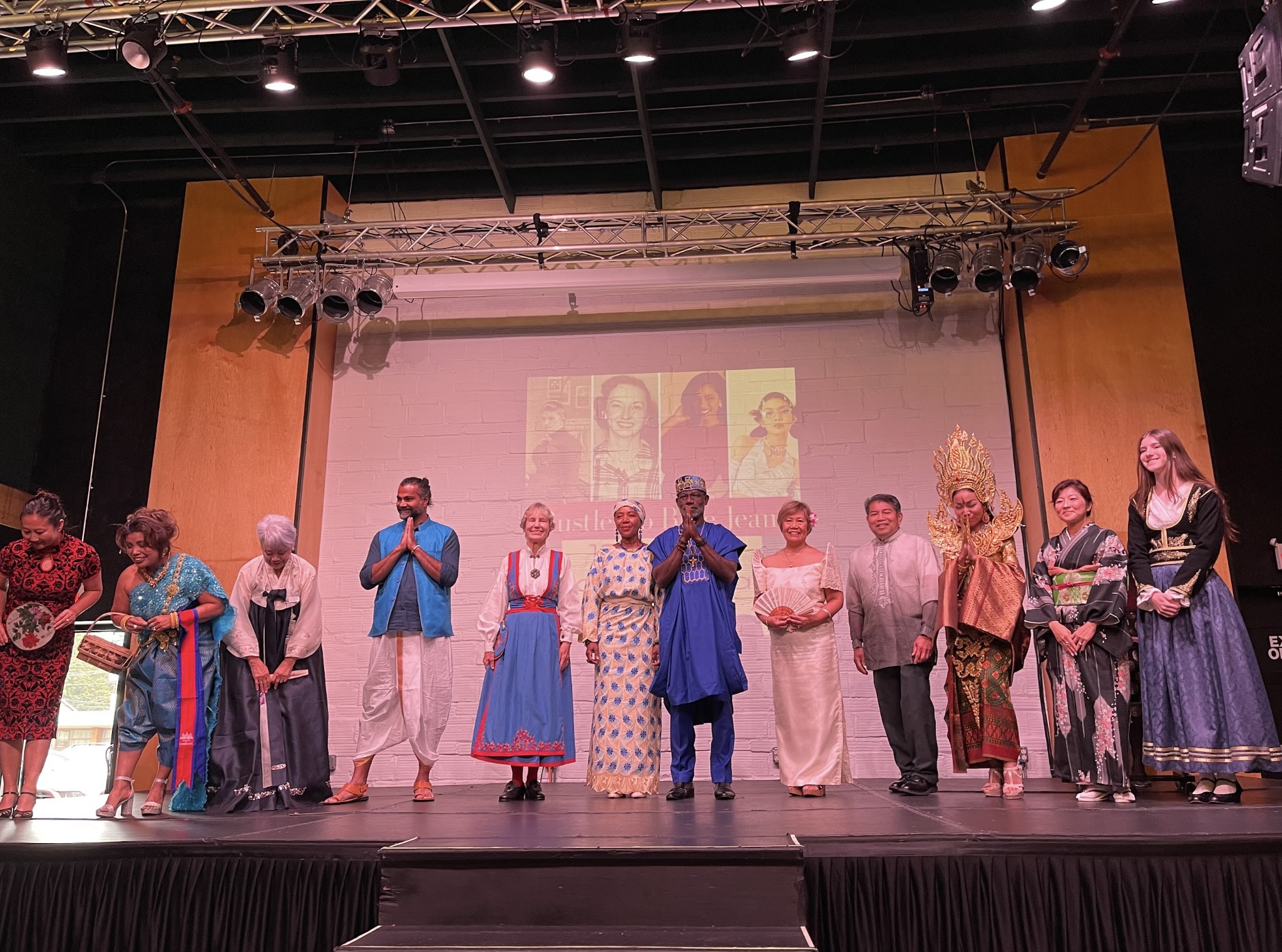
By Lindy Rybloom
On a stormy October 27, the cozy Edison Square in South Tacoma was a refuge for attendees of the City of Destiny Festival. The annual event, organized by the Tacoma Historical Society, celebrates Tacoma’s diverse history by showcasing the multitude of different cultures that constitute the greater Tacoma region. In the 19th century, Tacoma was nicknamed the “City of Destiny” because it was the western end-point of the Northern Pacific Railroad. The rainy northwest town promised new life, hope, and success to all who arrived here. This year’s theme, the history of fashion and retail in Tacoma from 1800 to the 2000s, recognizes the city’s distinctive and unique history.
The annual gathering of various cultures, vendors, community members and visitors is living proof of the vast identities that reinforce Tacoma’s status as a growing city. The Historical Society offered free admission, and the event was crowded with people of all ages eager to learn more about Tacoma’s rich and fashionable past. Edison Square was filled with an assortment of vendors. A few booths displayed vintage jewelry and other goods, including soaps and homemade Hawaiian candy. The Fort Nisqually Living History Museum booth offered visitors a go at historical puzzles and provided information about their exhibits.
A highlight of the event was the cultural fashion show. Twelve participants walked the runway in apparel traditional to their native country. The outfits from 10 countries — China, Cambodia, Korea, India, Norway, the Philippines, Thailand, Japan, Greece, and Nigeria — provided a fashionable look into some of the cultures that comprise Tacoma’s historical and contemporary communities. While local models strutted, the emcee provided detailed descriptions of the traditional materials used to craft the attire and explained their importance in the native culture. Erin Fagan (‘26), was impressed by the intention each outfit was made with, expressing that certain garments felt “ceremonial.” She appreciated learning about how each piece of clothing was “specific, or representative of something about their native country” she said.
Fagan’s hometown is Austin, Texas, a place she says often shies away from acknowledging its cultural roots. “The fashion show displayed a sense of generational and identity-based pride that was interesting to learn about,” she said. “I come from a culture that doesn’t really talk about the diversity that we have,” Fagan admits. She took a special interest in learning about cultural uniqueness in Tacoma specifically. “It encouraged me to explore other cultures around the world,” Fagan said.
As a volunteer-driven non-profit organization, the Tacoma Historical Society’s central mission is preserving, presenting, and promoting Tacoma’s history. With their help, locals can learn about Tacoma’s vibrant community. With events like the City of Destiny Festival, the public can experience unique and immersive historical presentations beyond routine museum exhibits.
This off-site event was in partnership with the museum’s current display: “Bustles to Blue Jeans: 120 Years of Clothing Tacoma”, curated by Elizabeth Korsmo. The exhibit presents not only an authentic recount of fashion trends and traditions, but also a glimpse into Tacoma’s retail industry and its evolution from dry goods to department stores and now, online consumption.
